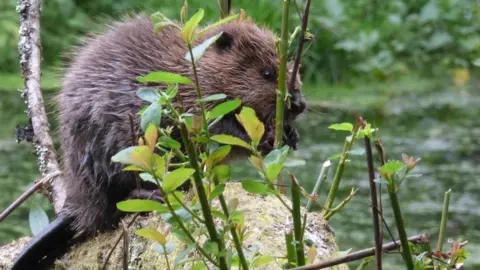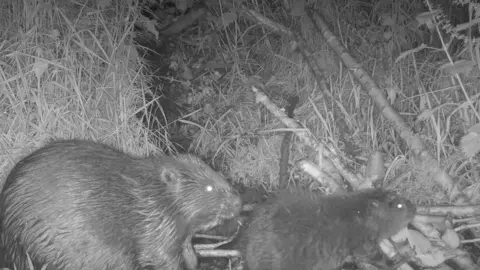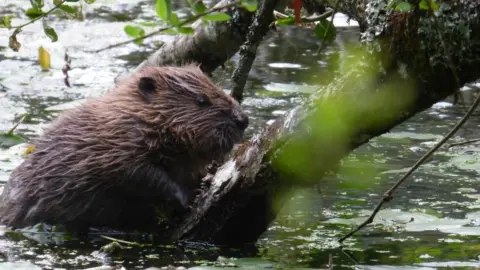Beaver kits born in Dorset for second year running
 Steve Oliver/Dorset Wildlife Trust
Steve Oliver/Dorset Wildlife TrustBeavers have been born in Dorset for the second year running as part of a conservation project.
Last year saw the first beaver born in the wild in the county in 400 years.
Dorset Wildlife Trust introduced an adult male and adult female into a freshwater habitat in 2021 as part of the project to bring beavers back to Dorset.
The trust said successful breeding for the second year showed the pair were "healthy and happy".
It said it was "excited to announce" two beaver kits had been spotted at the Dorset Beaver Project site in west Dorset.
"We are working closely with expert beaver ecologists to plan the next steps of the project as the beaver family evolves to ensure these influential mammals continue to thrive in the magnificent wetland they have created," it added.
 Steve Oliver/Dorset Wildlife Trust
Steve Oliver/Dorset Wildlife TrustThe 4-hectare enclosed site currently provides ample space for the family of seven (two adults and five kits), the trust said.
The Dorset Beaver Project is a five-year scientific study aiming to monitor and assess the impact the creatures have on the natural environment around them.
It is hoped the wetland created by the beavers would also provide a habitat for species such as frogs and newts.
The trust said their dams could increase biodiversity, filter and clean water, and even reduce flooding by slowing the rate of water during storms.
 Steve Oliver/Dorset Wildlife Trust
Steve Oliver/Dorset Wildlife TrustBeavers became extinct in the UK in the 16th Century, largely because they were hunted for their fur, meat and the oil in their scent glands.
The Eurasian beavers were relocated from Scotland under licence from NatureScot, the country's nature agency.
The project is part of a scientific study by the University of Exeter and Wessex Water to monitor the impact Europe's largest rodent has on water quality, flooding and other wildlife.

Follow BBC South on Facebook, Twitter, or Instagram. Send your story ideas to [email protected].
